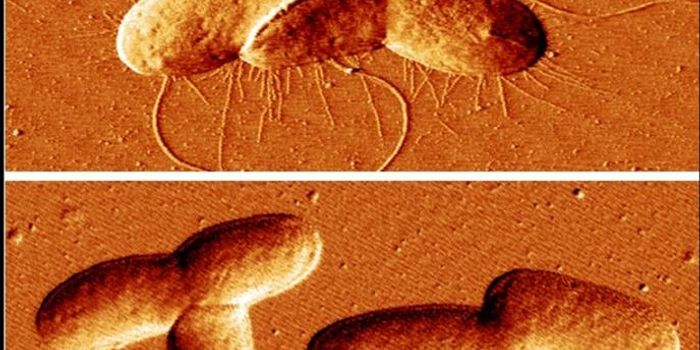Documenting biological magnetoreception in living cells
New research published recently in the Proceedings of the National Academy of Sciences from a team of scientists from Japan reports observations of the first-ever documented biological magnetoreception. Biological magnetoreception refers to some organisms’ ability to detect a magnetic field. This extra sense lets certain organisms perceive direction, altitude or location, and thus is a crucial tool for animal navigation, especially during migrations.
"The joyous thing about this research is to see that the relationship between the spins of two individual electrons can have a major effect on biology," said Professor Jonathan Woodward from the University of Tokyo, who collaborated with doctoral student Noboru Ikeya.
Before this investigation, science had yet to measure a change in chemical reactions inside a living cell due to influence from a magnetic field. In order to observe biological magnetoreception, the University of Tokyo team looked at how an artificial magnetic field would influence the autofluorescence of HeLa cells, or human cervical cancer cells that are useful for research purposes because of their light-sensing flavin molecules.
Enlisting many control measurements to make sure that the only change in the cells' environment was the presence or absence of the magnetic field, the team shone blue light lasers on the cells and measured the changes in their fluorescence. They found that every time the cells were exposed to the magnetic field, their fluorescence dimmed by roughly 3.5%.
"We've not modified or added anything to these cells. We think we have extremely strong evidence that we've observed a purely quantum mechanical process affecting chemical activity at the cellular level," Woodward exclaimed.

Notedly, the magnetic field that the researchers used in the experiment were 25 millitesla, or approximately 500 times stronger than the magnetic field of the Earth. Nevertheless, Woodward explains that even a weak magnetic field like that of the Earth could influence organisms by way of what is called the low field effect.
The researchers will continue their queries by looking at the way that the effect impacts other kinds of cells. That being said, their findings are exciting because they represent the first time that we have observed the direct link between magnetic field effects on chemical reactions in living cells.
Sources: PNAS, Science Daily








